The installation of elevating beds, gas boilers and a double pulsation system in the bathrooms; the prohibition of the use of amenities, care in the use of waste and the implementation of a circular economy system in favor of the environment are some of the initiatives promoted by the new regional tourism law of the Balearic Islands presented by the president of the Government, Francina Armengol, in Madrid.
The measure will involve an investment of 55 million euros and a substantial change towards the tourism model of the future. The rule, as Armengol has highlighted, will allow the islands to lead this process around sustainability understood in three aspects: social, economic and environmental.
Armengol has defended this “ambitious strategy” to “turn the tourism sector into an engine of positive impacts throughout society”, which will allow the islands to be “more sustainable socially and ecologically”.
The president explained that collaboration with the sector will allow progress in “a transformation that has been underway for some time” and that it will mean “not going back to 2019, but rather reaching a better point in all aspects: in terms of job quality, wages, in opportunities for entrepreneurs, in business, in environmental and social sustainability, in competitiveness, in equality and rights”.
This law considers, according to the president, tourism “as a tool that must have a positive impact on the whole of society”, an approach that will generate solutions “capable of simultaneously improving the tourist experience, the quality of life of residents and the working conditions of the workers” and that will allow “the tourism that made us a world reference for business and a dream paradise for leisure, now leads us to lead environmental regeneration and social progress”.
In this sense, the rule contemplates increasing protection for chambermaids, a group highly affected by workplace accidents. In this way, from the year 2023, the hotels on the islands will have to install elevating beds (mechanical or electrical) to facilitate their work, a measure that implies renovating 300,000 beds and from which more than 20,000 chambermaids will benefit.
At the same time, the standard is committed to a circular economy in the sector, for which all companies will be required to have a circularity plan, which will make the Balearic Islands a pioneer destination when it comes to standardizing this issue, and at the same time adapt tourism regulations to the objectives of two regional laws, Climate Change and Waste.
In this line, circularity will cover aspects such as food, the use and care of water, waste or clean energy. Among the guidelines that will be established around these issues, in the field of food, the use of species classified within endangered categories will be prohibited and the traceability of fish and shellfish of Balearic origin will be established as mandatory.
In terms of energy, tourist establishments will be forced to change their fuel oil boilers for natural gas or electric ones, emitting 57,600 fewer kilos of CO2 per year per establishment.
Within the field of water, the standard establishes the obligation to install double button systems in WC cisterns in hotels, as well as the installation of water-saving devices in taps in sinks, bathtubs and showers. The use of rainwater will also be promoted, which will be a factor to take into account in improving the classification of the establishment, and tourist accommodation must measure water consumption.
Finally, in terms of waste, the rule will prohibit the use of single-use amenities (bathroom sanitary amenities). At the same time, hotels will have to replace the use of paper with QR codes and will also be obliged to measure their waste consumption. In addition, the establishments must control the temperatures of the buildings in an integral way, also in the areas reserved for staff, especially in the kitchens.
The standard also includes other measures such as a complete modification in the scales that will serve to establish the hotel classification, including increases in the score for circularity measures, such as the use of renewable energies or consumption optimization systems.
President Francina Armengol has detailed the axes of this pioneering regulation in the State in an act in Madrid attended by a hundred people, including the Second Vice President of the Government of Spain and Minister of Labor and Social Economy, Yolanda Díaz, the Minister of Industry, Commerce and Tourism, Reyes Maroto, the state leaders of the CCOO and UGT unions, Unai Sordo and Pepe Álvarez, as well as the main representatives of the tourism sector of the islands.
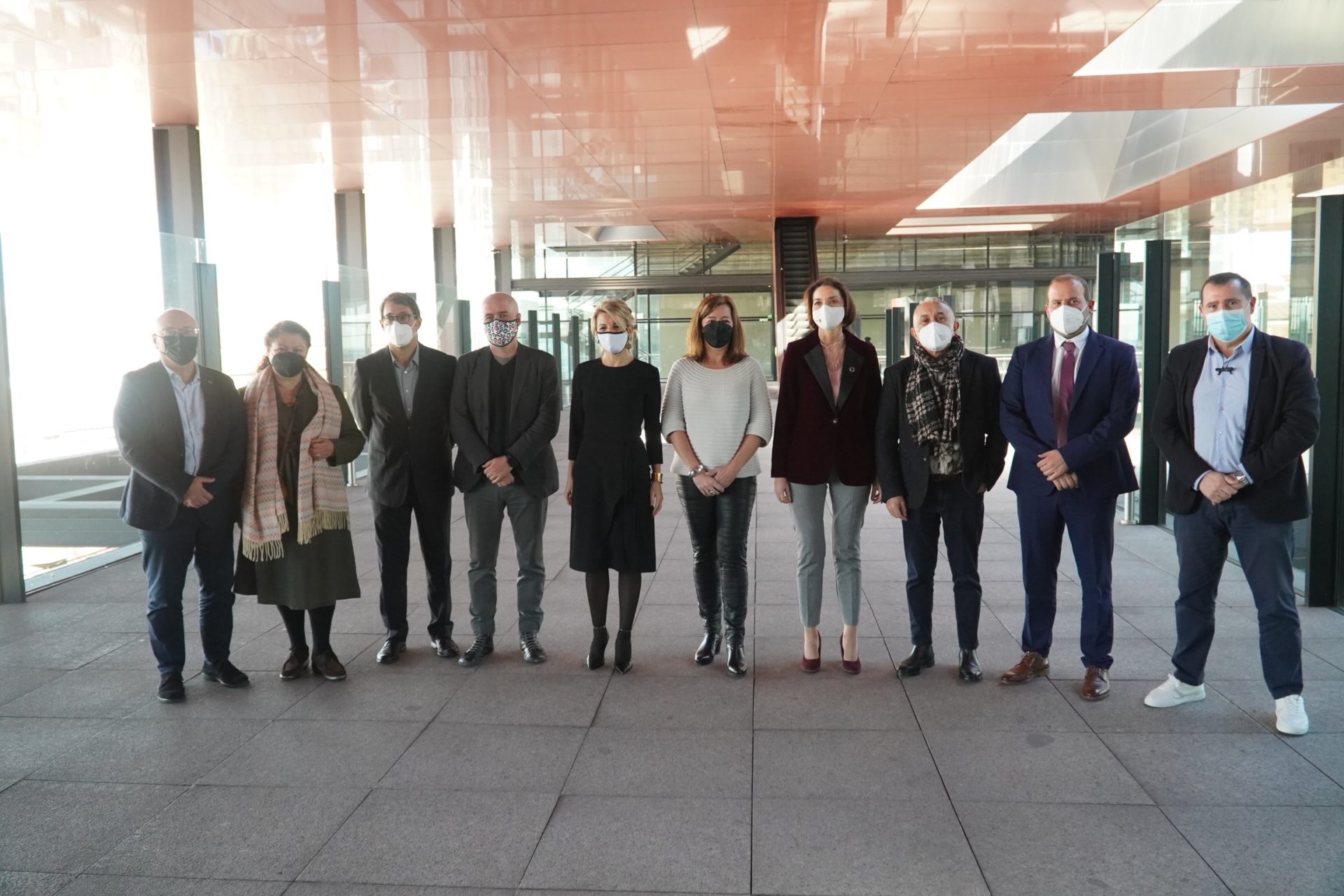
President Armengol, with the ministers Yolanda Díaz and Reyes Maroto, and other members of the Govern de les Illes Balears. Photo: GOIB.

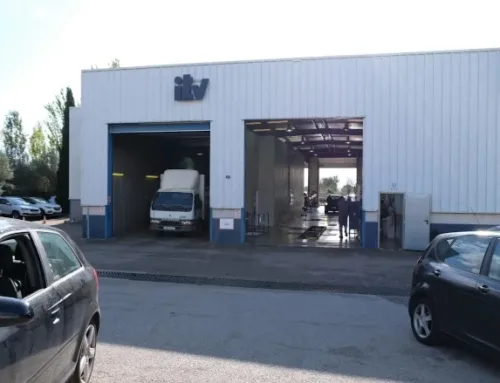
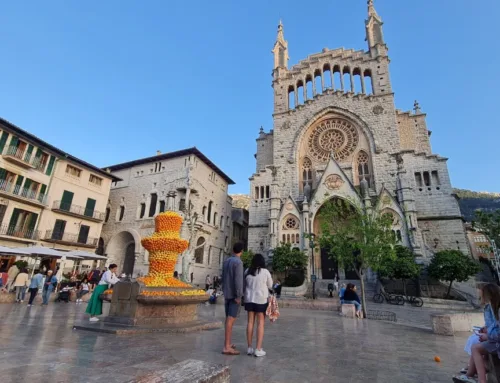

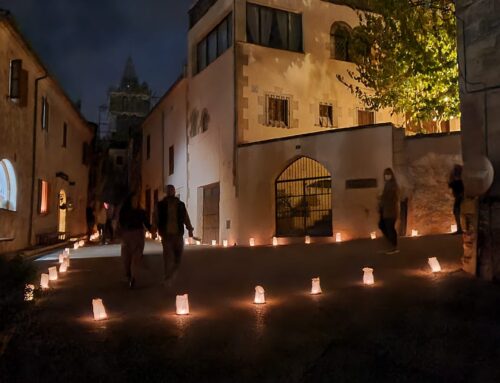
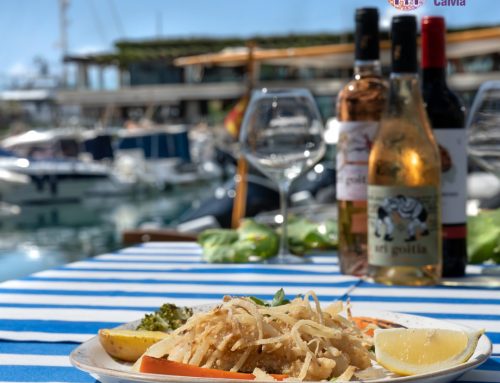

Leave A Comment